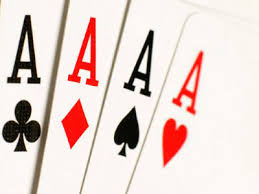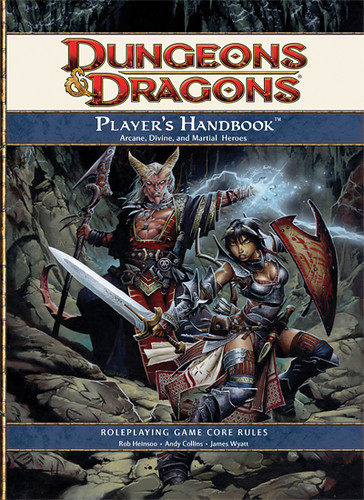Survival of the Poorest
This week I’m struggling to catch my breath after spending a long weekend in Las Vegas with two of my oldest and dearest friends from college. The three of us are all cash game poker players in varying degrees of severity and seriousness; one of my friends had never played live poker in a casino until this past weekend; another plays daily online, hosts a low-stakes home game virtually every weekend, and at least once a month takes a daytrip to a tribal casino.
 As for me, I fall right in the fat middle, having played a little bit in casinos for real money and also online strictly for fun. I do not consider myself a serious poker player, but I do take the game seriously when I play it. Until this past weekend, I had never strung together more than two or three hours of continuous play, and even then it was within the confines of a small, comfy home tournament hosted by a group of friends. So when we all met up to play a weekend’s worth of poker, I had to find some serious stamina somewhere, and fast.
As for me, I fall right in the fat middle, having played a little bit in casinos for real money and also online strictly for fun. I do not consider myself a serious poker player, but I do take the game seriously when I play it. Until this past weekend, I had never strung together more than two or three hours of continuous play, and even then it was within the confines of a small, comfy home tournament hosted by a group of friends. So when we all met up to play a weekend’s worth of poker, I had to find some serious stamina somewhere, and fast.
Poker is arguably one of the most ubiquitous games in Western culture, largely due to its simple rules and how it encourages social interaction both within the game experience and outside it. It’s a game easily played while enjoying a few adult beverages, and given the right combination of people at any given table, poker is a game that makes fast friends among virtual strangers. A player who plays the game long enough will see the luck of the cards do equally providential and terrible things to the fortunes of the people holding them; furthermore, there is usually a communal sense among players that the highs and lows will eventually catch up with us all.
 In other words, there is a peculiar fatalism in playing this game always held in check by the egalitarianism inherent in the random spill of the cards. No person—not even the dealer—can be held responsible for the luck of the draw. And this, of course, is what makes playing games like poker for money so intoxicating and so potentially personally destructive to the players who play them. There is no golden elixir to swallow, no magic sword to wield, no discernible pattern to memorize, no Konami code to punch in that will immunize and protect a player from the highs and lows of this game; the best any one player can do to protect herself is to find comfort in the statistical probability of seeing that last card she needs to make the straight flush with three other players betting and raising into her before the river card appears, and as any table-top RPG player worth his salt will tell you, percentage odds are cold comfort when you’re in the very belly of the beast. How to best describe and categorize these kind of experiences is puzzling at best.
In other words, there is a peculiar fatalism in playing this game always held in check by the egalitarianism inherent in the random spill of the cards. No person—not even the dealer—can be held responsible for the luck of the draw. And this, of course, is what makes playing games like poker for money so intoxicating and so potentially personally destructive to the players who play them. There is no golden elixir to swallow, no magic sword to wield, no discernible pattern to memorize, no Konami code to punch in that will immunize and protect a player from the highs and lows of this game; the best any one player can do to protect herself is to find comfort in the statistical probability of seeing that last card she needs to make the straight flush with three other players betting and raising into her before the river card appears, and as any table-top RPG player worth his salt will tell you, percentage odds are cold comfort when you’re in the very belly of the beast. How to best describe and categorize these kind of experiences is puzzling at best.
My friend and I had played a brilliant session of $1/$2 no limit hold-em at the Mirage, in the early evening of our last full day in Vegas. We sat at a table where the players—most of them clearly rounders—were finishing their last few hands before breaking for dinner. We barely played for 25 minutes; I only played three flops and my buddy played four. We collectively walked away from the table up nearly $400 for our time and trouble. As I cashed in my chips I literally felt bulletproof, that if the zombie apocalypse broke out right then and there (next to the Cirque de Soleil tribute to The Beatles, natch…), my friend and I would certainly survive.
Only a couple of hours later, however, I was at the tail-end of that same day, and playing another session of $1/$2 no limit hold-em at the MGM Grand, and I walked away from the table having flushed my whole chipstack chasing the last card that would have given me the best possible hand given the cards in play on the table. I had done all the math, considered the possibilities, and took a swing at bluffing another player off a huge pot that would have tripled me up for the day; unfortunately (and predictably, given the odds, of course…) I missed. When it came down to the end of the hand and I had lost what I had convinced myself was the best strategy out of this particular dungeon, that was the moment it struck me that poker isn’t a conventional game of chance.
No.
See, cash game poker is a survival-horror game.
 Cash game players are able to last into the wee hours of the next day’s morning (surviving mostly on the sugar from their weak-sauce well drinks, of course) because if they play enough decent-sized pots their bloodstreams are constantly awash in the ebb and flow of adrenaline and melatonin. I raked enough $40 and $50 pots last weekend to begin recognizing that cold flood racing down my arms and into my fingers as I pulled the chips into my little hovel: it’s the same feeling I’ve had when narrowly escaping the fish-people police in Call of Cthulhu: Dark Corners of the Earth or using my final 20 machine gun rounds to drop that last Big Daddy in one of the deeper, darker levels in BioShock.
Cash game players are able to last into the wee hours of the next day’s morning (surviving mostly on the sugar from their weak-sauce well drinks, of course) because if they play enough decent-sized pots their bloodstreams are constantly awash in the ebb and flow of adrenaline and melatonin. I raked enough $40 and $50 pots last weekend to begin recognizing that cold flood racing down my arms and into my fingers as I pulled the chips into my little hovel: it’s the same feeling I’ve had when narrowly escaping the fish-people police in Call of Cthulhu: Dark Corners of the Earth or using my final 20 machine gun rounds to drop that last Big Daddy in one of the deeper, darker levels in BioShock.
More to the point: cash game poker is a game structure that players cannot win; it can merely be survived. A winning hand of poker is only better than the other hands on the table at the end of the betting cycle; after the players pay each other accordingly, the cards are shuffled and a fresh hand is dealt. If we consider the simple fact that in a cash game, another hand will always be dealt as long as there are two people sitting at the table, poker is clearly a game of stagnation and stasis with no discernible or desirable end-state. Yes, a player can build an impressive stack of chips in front of her, but the game itself remains unchanged; the game does not care how many chips the players possess, for it is hermetically sealed from those who play it. Like H.P. Lovecraft’s Innsmouth and Ken Levine’s Rapture, the cash game is an abandoned, fallen city, and its players are—at best—self-serving looters.
In the best survival-horror videogames I’ve played, I have always walked away realizing that I might be richer for the experience, but I have not truly won or fundamentally changed anything about my surroundings. Thus, playing a long weekend of cash game poker with my friends only to get on a plane and fly home feels eeirly similar to the feelings I’ve had finishing a session of Left 4 Dead:

Woah….that was close.